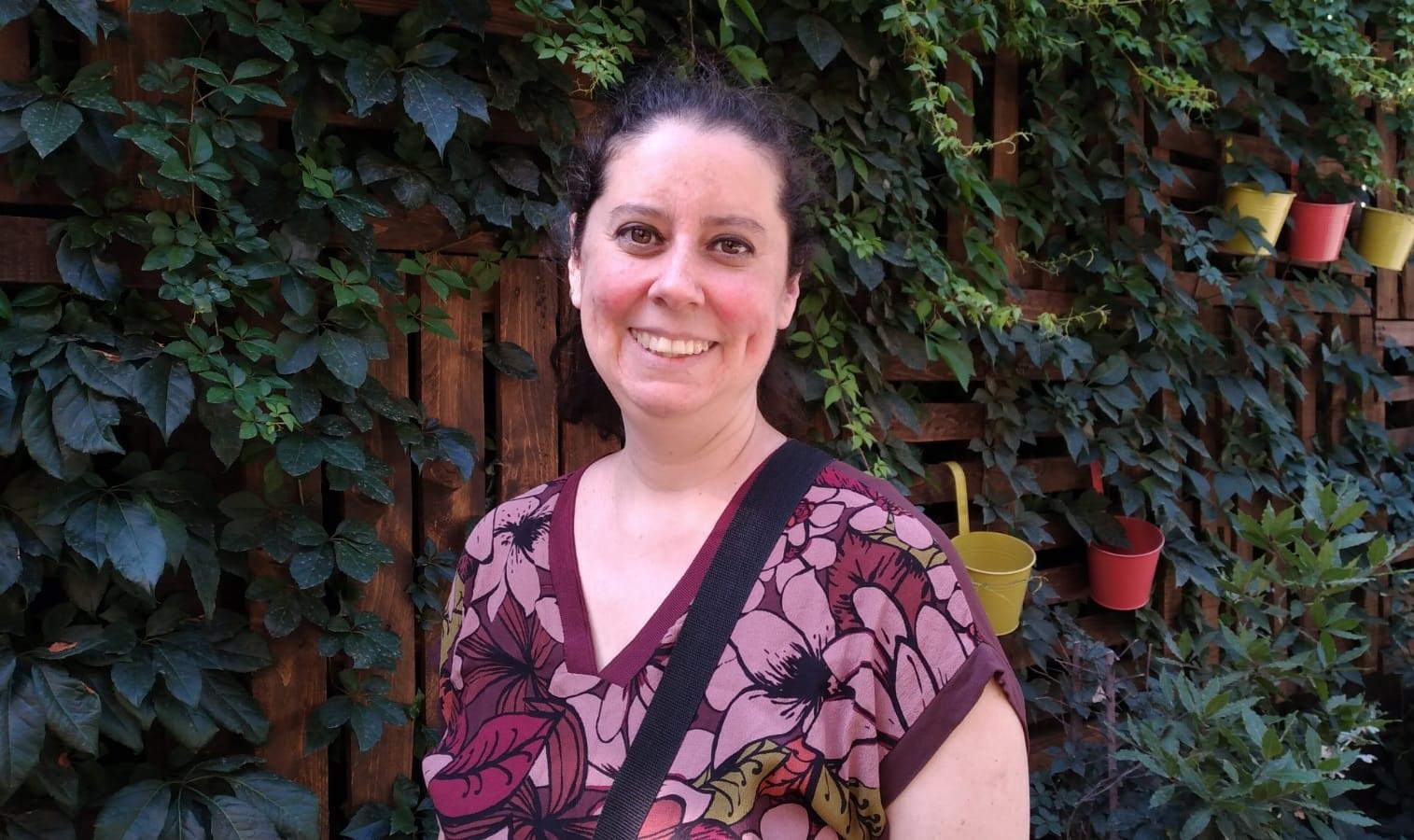After a PhD and 10 years in research, Dr Paula Martinez Lavanchy decided to explore something new. Now working in research data management, she finds her job very rewarding.
Paula Martinez Lavanchy: “It is very rewarding to work with PhD candidates and learn together with them.” (Photo: Ximena Martinez Castillo)
“It has been a long road for me to arrive in the research data management (RDM) world. I studied biotechnology in Chile, where I am originally from. I did a PhD in environmental microbiology in Germany where I worked as a researcher. After 10 years and two postdocs I realised that research was not the path I wanted to continue on. In the academic world you go away from the more practical things but that’s what I liked about research, to be in the field, investigate, do experiments.
I thought about trying something else but didn’t really know what. I came across an advertisement for a research data management position at the Technical University of Denmark. I applied for that position not really knowing exactly what I would do in practice. Of course, I had read about research data management and was very familiar with the issues and challenges that researchers encounter when they are doing research and what to do with the data, how to organise it, document it etc.
In 2015 I went to Copenhagen and we started setting up the research data management services from scratch. I really liked the field because it allows you to be in contact with researchers, still getting to know about different disciplines. After three years I had the opportunity to apply for a position here in TU Delft. In 2019 I started here and it was like moving to an upper league because TU Delft has been the frontrunner in the field. I started as a Research Data Officer, part of the TU Delft Library, but also part of the 4TU.ResearchData repository.
I have taken on tasks in very diverse topics, but the roles of training and research software have been growing a lot. At the beginning the idea was to establish a course for PhD candidates on the basics of research data management. We have the faculty Data Stewards, which have been the main driving force for researchers to get to know about RDM, but the faculties expressed the need and the Graduate School was enthusiastic about having a RDM course provided centrally. With the expertise of our team at the Library, together with the education support team and Data Stewards, we created a course. It took us a year, mainly because we opened up the process to many stakeholders on what content we should include.
‘Often researchers want to make research software available to the community’
The result was a three-week blended course, self-learning plus some interactive sessions and it has been quite successful. We do it four times per year and we can host 100 PhD candidates. The Graduate School has already asked if we can provide even more courses. It is very rewarding to work with PhD candidates and learn together with them. I’m not an expert in all of the disciplines and workflows so every run of the course is also a learning experience for me. It never gets boring because of the different feedback and challenges each time.
I’ve also learned a lot working in the research software field because it was something I hadn’t worked on before. Researchers at TU Delft create short scripts to analyse data and some researchers really produce software as a research output. Often researchers want to make research software available to the community. In all of those cases you need to implement best practices to manage research software properly so that others can reuse it and so that it’s sustainable over time.
We saw the need to have a policy for research software, to clarify expectations on best practices, but also to make research software a valued research output at TU Delft. We also had to find a way to facilitate how researchers could properly comply with copyright requirements and still have freedom to make software openly available. This project was also rewarding because I had the opportunity to work with colleagues from ICT, legal services, the Valorisation Centre, the Library and a researcher from Applied Sciences from whom I’ve learned a lot.
This work started a long time ago, before I arrived. I basically coordinated the work to push the policy effort forward. After two years of work, we got our policy and guidelines for research software published in March 2021. To the best of my knowledge, we are one of the first universities in the Netherlands to have this kind of policy which is a nice result for TU Delft, but it is also starting to have an impact on the landscape in the Netherlands.”
Want to be featured in Humans of TU Delft? Or do you know someone with a good story to tell? Send us an e-mail at humansoftudelft@gmail.com
Heather Montague / Freelance writer



Comments are closed.